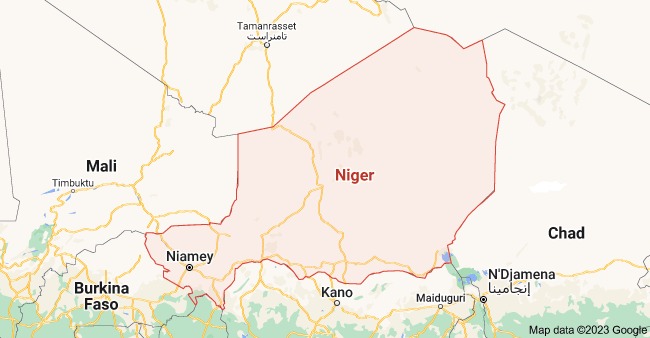Nigeria’s tech ecosystem has been rapidly evolving, presenting tremendous opportunities for economic growth and development. With over 200 million people, a growing internet penetration rate, and prominent Nigerian tech startups, there is immense potential for the country’s digital economy. Significant enough to rival Silicon Valley if properly harnessed.
The history of economic growth driven by manufacturing is now extending to software and electronics. The country aspires to become one of the top economies in the world and recognises technology as a critical requirement to achieve this vision. Across the world, tech startups are drivers of innovation and strong catalysts for job creation and economic recovery. Developing solutions to unmet local and regional needs and addressing critical global challenges like climate change, healthcare, and food scarcity
In recent years, numerous Nigerian startups like Flutterwave, Paystack, Vendease, Reliance Health, etc. have gained international recognition, contributing to the nation’s reputation as a tech hub within Africa. Sectors like fintech, e-commerce, agritech, proptech, and health tech have seen remarkable growth. Innovative solutions to long-standing challenges emerge daily as these startups steadily create new opportunities for businesses across Africa to thrive.
Most regions are enjoying rapid digital transformation, but Nigeria is still on the cusp of technological expansion. Economic growth slows and then picks up. In a report by the African Development Bank Group on Nigeria’s Economic Outlook, GDP growth fell to 3.3% in 2022 from 3.6% in 2021. The report maintained that growth will remain subdued at 3.3% in 2023–24, with inflation elevated at 19.6% in 2023 before declining to 13.6% in 2024. What the recent surge of economic contraction could mean for Nigerians and local tech ecosystems is huge. If properly harnessed, it could potentially plug the generational knowledge gap that hampers technology penetration.
To boost their impact on Nigeria’s digital sector, tech startups should focus more on providing disruptive solutions that address real issues in local communities within the country. Startups that disrupt the traditional economy spur innovation, enhance existing industries and markets, and foster economic growth.
As startups grow, there is always a need to hire more employees, which contributes to job creation. When there are more jobs, it boosts the country’s economy, reduces unemployment, and contributes to workforce development through digital training programmes, workshops, and internships. However, tech startups may have to learn to attract and retain budding top talents. This further drives startup success and also creates a positive ripple effect in the job market.
Skill transfer is very important for digital transformation, but unfortunately, it is not enough. Nigerian tech startups need to drive the digital mindset shifts required for the implementation of these great entrepreneurial ideas. Beyond that, building scalable business models is essential for fledgling companies to expedite growth and maintain a much broader impact on the country’s digital economy.
Startups can reach wider markets and generate more revenues, but they still need capital to fuel their growth. Getting access to venture capital, angel investors, government aid, and crowdfunding can provide the necessary funding to scale budding SMEs with success.
Collaborating with indigenous established companies, research centres, and other startups can have a significant influence on knowledge sharing, resource pooling, and access to new markets, which in turn accelerates growth. Additionally, building relationships with regulatory bodies and advocating for favourable policies can help startups overcome some limitations and create an environment conducive to growth.
One of the key goals of the Nigeria Startup Act is to effectively reconcile the existing disconnect between startups and regulatory bodies. Eliminating stringent regulations and offering incentives such as tax exemptions, governmental financial support, and credit initiatives
When it comes to boosting the impact of technology startups, expanding operations beyond Nigeria’s borders cannot be overemphasized. The exports of some innovative technologies contribute positively to the balance of trade. In addition, startups that incorporate CSR initiatives into their business models usually have a positive impact on their communities. Some Nigerian tech startups can integrate social and environmental concerns into their business operations and contribute to local development.
The need to promote the impact of tech startups in the digital sector is hinged on the country’s growing economic projections. However, infrastructural limitations, regulatory challenges, and other numerous drawbacks in the tech ecosystem provide clear grounds for implementing support systems for nurturing SMEs. This is where startup incubators and accelerators come into play.
In a report by the Nigerian Startup Ecosystem Report 2022, the proliferation of local tech incubation hubs in Africa, particularly Nigeria, saw a massive upswing in the last decade. The whole scenario signified a dynamic shift within the country’s IT space. As a new crop of early-stage businesses startups have been receiving the necessary support to succeed. These tech hubs hold a clear mission: to foster an environment that propels startups towards success, thereby enriching the technology ecosystem in Nigeria.
The Impact of Co-creation Hub in Nigeria’s Tech Ecosystem
Crucial to the success of fledgling companies receiving tech incubation is access to resources, mentorship, funding, and a supportive community. The Lagos-based-based Co-creation Hub (CcHUB) is one of the seedbeds of innovation for startups in Nigeria. Since its inception in 2011, CcHUB has become one of the leading examples of tech incubators in the region. The hub’s primary objective was to provide a platform to support young Nigerians with innovative ideas and empower aspiring entrepreneurs to build and launch tech-enabled solutions.
Co-creation Hub supports Nigeria’s tech community via incubation programmes, and to date, more than 100 ideas and companies have flourished under its guidance. Resulting in the creation of more than 450 job opportunities.
Top technology companies in Nigeria and beyond, such as TechCabal, Fora, Andela, and TechPoint, have roots in CcHUB. These startups either originated as ideas within the hub, made their initial hires there, or used the hub’s facilities during their early stages.
CcHUB offers a burgeoning group of innovative entrepreneurs comprehensive support, from office space and mentorship to access to legal and accounting services. They work closely with startups in their initial phases to hone ideas and products and connect them with potential investors and venture capitalists. CCHub’s extensive network allows startups to forge collaborative partnerships with major companies, tech communities, and other startups.
Their pre-incubation programme spans six months and offers a $5,000 cash investment to startups with access to a network of experienced in-house mentors and experts. The twelve-month incubation programme caters to ventures that have achieved some level of traction and revenue. These startups receive access to up to $25,000 during the programme, as well as direct access to follow-on funding of up to $250,000 from CcHUB’s Growth Capital.
CcHUB’s 12-week accelerators refine startups’ product, financial, and business skills for sustained growth. In contrast to pre-incubation and incubation initiatives, accelerator programmes fast-track growth over a shorter term through an intensive, structured curriculum. Providing seed funding, mentorship, and coaching from seasoned entrepreneurs and investors
CcHUB has partnered with top local and international organisations like the Tony Elumelu Foundation, Nokia, Intel, Google, etc. The tech hub’s milestone includes the establishment of CcHUB Growth Capital, an inventive social innovation fund that materialised in December 2015. This pioneering fund aimed to invest in cutting-edge infrastructure to drive change in Nigeria and beyond. It was projected to reach a substantial size of over $1 billion in the subsequent 24 months.
Another significant stride was an expansive European enterprise named PitchDrive, which was launched in partnership with Google for Entrepreneurs. This intensive three-week tour covered five key European tech hubs—London, Amsterdam, Berlin, Zurich, and Paris—to secure €20 million in funding from investors.
The initiative GO-GA (GoLabz Goes Africa) garnered acclaim for its commitment to advancing STEM education across Africa. In collaboration with a consortium comprising two African and five European partners, they garnered substantial part-funding from the European Commission totalling €1.5 million. This funding was secured under the Horizon 2020 Research and Innovation Funding Scheme.
The NG_HUB, in partnership with Facebook, was unveiled in May 2018. This deep-tech innovation hub, situated in Yaba, is a space for entrepreneurs, researchers, students, and technologists. It is dedicated to fostering solutions driven by advanced technologies, particularly artificial intelligence, data science, the Internet of Things, and virtual reality.
CcHUB’s Education Practice, known as re: learn, was instrumental in delivering high-quality STEM education to numerous students. Their multifaceted approach encompassed in-school and out-of-school programmes, catering to students aged 5–18 years. Collaborations with entities like Google, the MacArthur Foundation, Oracle, the Raspberry Pi Foundation, and the Ministry of Education enabled them to extend quality education at scale.
The i-HQ Project is a visionary project aimed at providing an environment conducive to collaboration by offering essential infrastructure and resources for education, industry, and government stakeholders. It culminated in the development of a virtual tour, engaging the tech community and key stakeholders.
A gathering in June 2017 led to the formulation of the Yaba Manifesto. Stakeholders of the Yaba technology ecosystem convened to chart a course for its advancement. Identifying seven pillars pivotal for success: culture, infrastructure, policy, talent, research and development, funding, and smart cities. They aspired to not only elevate Yaba’s ecosystem but also provide a blueprint for the development of technology clusters across the nation and eventually the continent.
CcHUB’s CEO and Co-founder as an Example of Tech Startup Success
CcHUB’s CEO and co-founder, Bosun Tijani, continuously emphasises the importance of building communities within the technology industry in Nigeria. Recently appointed Nigeria’s Minister of Communications, Innovation, and Digital Economy, Tijani is a prominent figure in the country’s tech ecosystem. His appointment is widely accepted due to his influence in nurturing tech startups.
He holds a Master’s degree in Information Systems and Management from Warwick Business School and a PhD in Innovation and Economic Development. Tijani has undergone executive courses at prestigious institutions like the John F. Kennedy School of Government and Stanford University. Before CcHub, Tijani held positions in organisations like AIESEC, Hewlett-Packard, and the International Trade Centre.
Promoting indigenous tech hubs is paramount if Nigeria is to both compete in the global economy and meet its environmental goals. To harness this potential, African leaders, entrepreneurs, governments, and investors must collaborate. A focus on leadership, learning, shared experiences, and fostering innovation can propel Africa into a global innovation hub.




